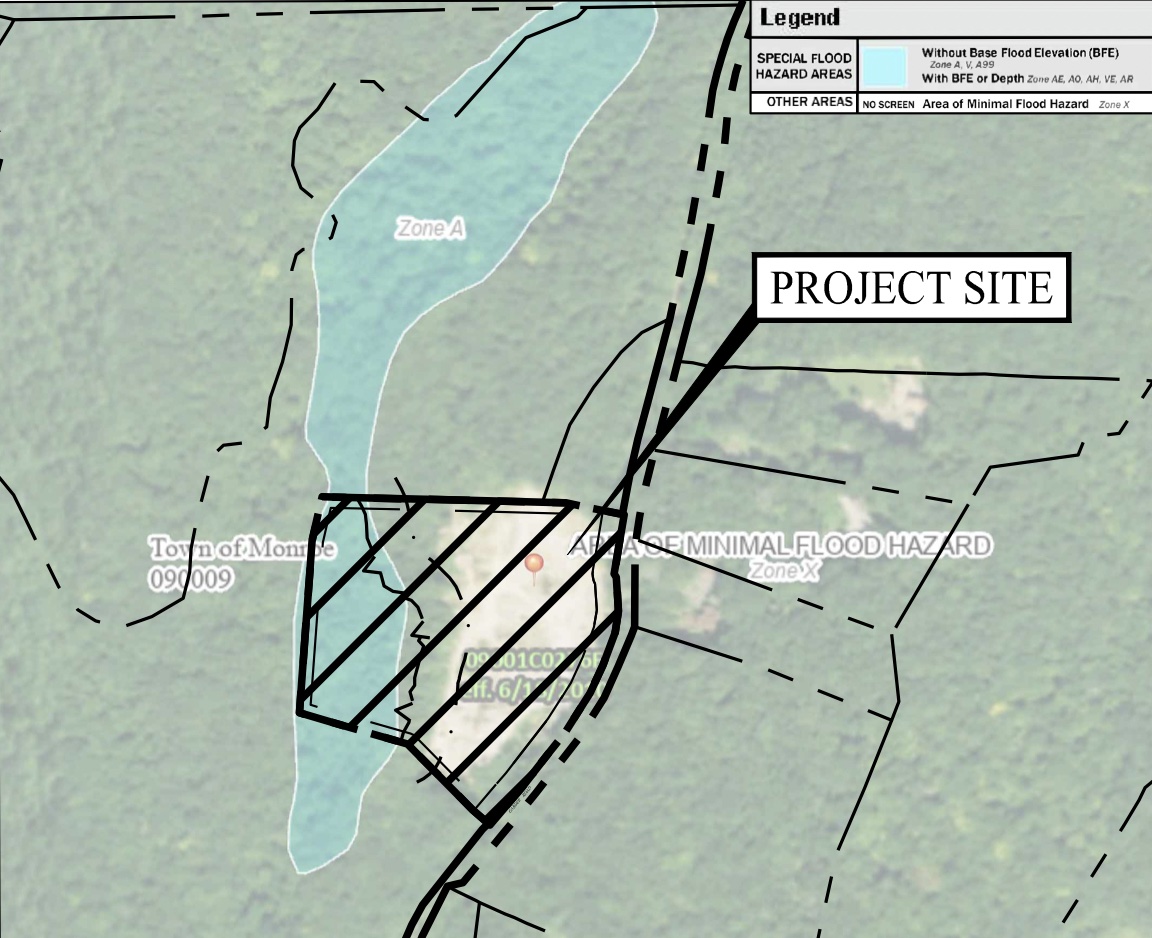MONROE, CT — A developer sought an excavation and fill permit to prepare a 9.5 acre property at 125 Garder Road for the construction of two industrial buildings, then told Town Hall staff he intends to pursue a residential project instead. But the Planning and Zoning Commission pulled the plug on those plans Thursday night.
The commission denied the application by a vote of 4 to 1 with Chairman Michael O’Reilly casting the lone yes vote. The plan involved blasting, rock crushing and the removal of 81,700 cubic yards of fill within two years.
“I just see this as a quarry,” Secretary Ryan Condon said during deliberations. “I think, to me, the only thing I see they definitely wanted to do is that scale. They have rock processing down the road. I see this as nothing more than a quarry, which we don’t allow in town.”
Condon noted how the applicant, Grasso Companies, said it wanted to prepare the property for construction of two industrial buildings within two years, before the idea changed to a residential project at the last minute.
“They don’t have a plan for this property,” he said.
Condon based his no vote on the fact that Garder Road is a scenic road, he saw no need to lower the grade of the property to street level, and thought putting in industrial buildings on the dirt road could pose traffic safety issues.
Leon Ambrosey, a commissioner who also voted no, expressed skepticism over approving site work for a conceptual plan.
“I would want the development plan,” he said. “Without it, the property will never be developed. It is a scenic road and there will be a lot of truck traffic on that road — there already is a tremendous amount.”
Vice Chairman Bruno Maini denied the application for what he said is its inconsistency with the Town Plan of Conservation and Development, lack of a future plan and the scenic road the property is on.
Robert Westlund, a commissioner, voted no due to public safety concerns and the neighborhood impact, because he said he believes the site work would take too long.
The developer submitted a blasting plan with pre-blast surveys and a promise to offer seismographs to neighboring property owners.
During the hearing, an Applegate Lane resident expressed concern over potential damage to his property, noise from rock crushing and traffic safety.
O’Reilly noted how the applicant had agreed to reduce the amount of fill to be removed from 109,000 cubic yards over five years to 81,700 cubic yards over two years. He also expressed support of recent comments from the developer’s engineer to town staff of wanting to rezone the property from an Industrial-2 District back to residential.
“We all felt that was more appropriate for a residential area, so I’m happy to hear that,” O’Reilly said.
Before the commission’s vote to deny the application, O’Reilly had suggested further reducing the amount of fill the developer could remove from the property.
All respectful comments with the commenter’s first and last name are welcome.






